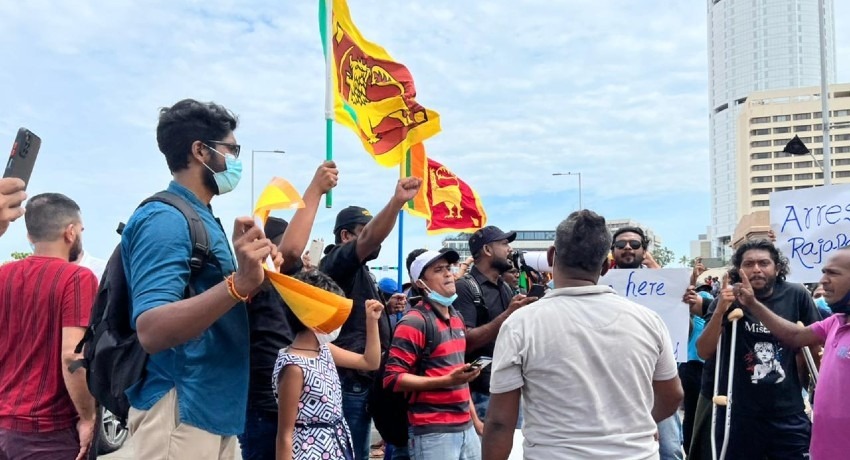Sri Lanka is a country which has lived through multiple catastrophes since winning its independence from Britain in 1948.
Most calamitously, there were three decades of civil war between the majority Sinhalese and the minority Sri Lankan Tamils.
Yet throughout this troubled history, the government in Colombo has never reneged on its debts.
But with protesters on the streets complaining about soaring food and fuel prices and the leadership of the ruling family, the finance ministry felt it had few other choices but to suspend payments.
It stressed the country’s uninterrupted record of paying its way through thick and thin, adding that to continue to do so ‘was no longer tenable.’
Sri Lanka is no Argentina, which has formally defaulted on its debt nine times since 1827 and twice in recent decades.
As the country seeks to deal with what IMF boss Kristalina Georgieva describes as ‘crisis on top of crisis’ – the pandemic followed by the war in Ukraine – it decided it has no other choice but to try to reshape the financial and economic landscape.
In spite of past strife, Sri Lanka with its highly talented, well-educated government elites, is not the first nation which would be thought of as sparking a global meltdown.
Its difficulties, however, mirror a huge build-up of debt, social inequality, poverty and hunger across emerging markets and the developing world during Covid.
The Western nations have been so focused on their own health and economic disruption in the pandemic that the rest of the world barely has received any attention.
A report, just compiled by the UN trade and development arm Unctad, warns ‘we are on the brink of a global debt crisis.’
Before the Ukraine war, developing countries were on average spending 16pc of export earnings on servicing debt. The figure among smaller and island states is twice that.
To place matters in perspective, Germany’s debt obligations when they were reorganised (effectively written off) by its creditors in 1953 never exceeded 3.4 per cent of exports.


